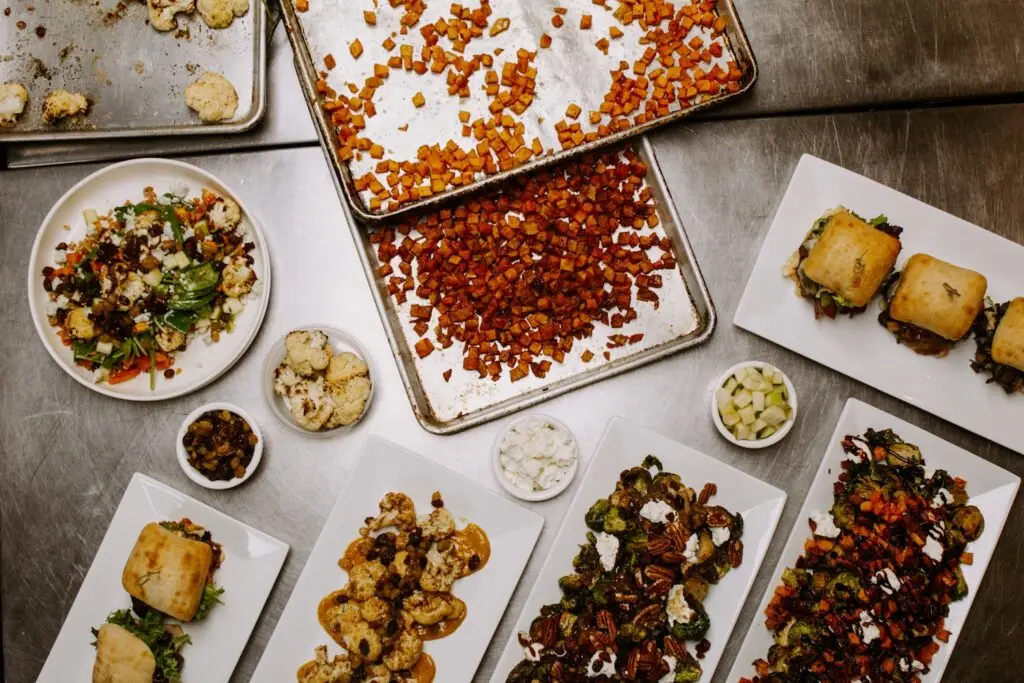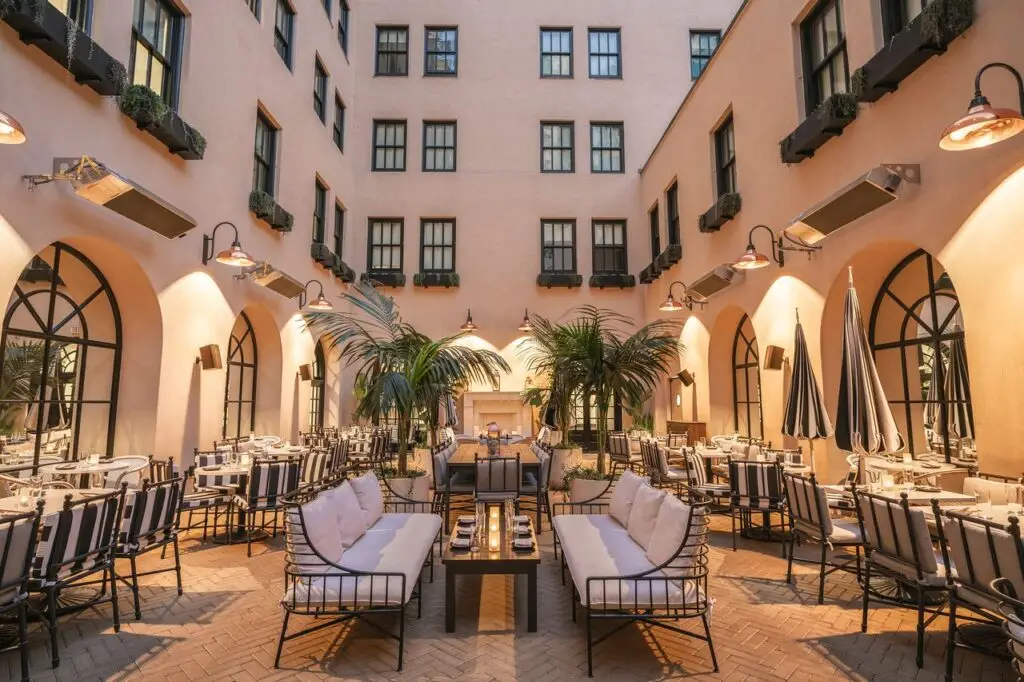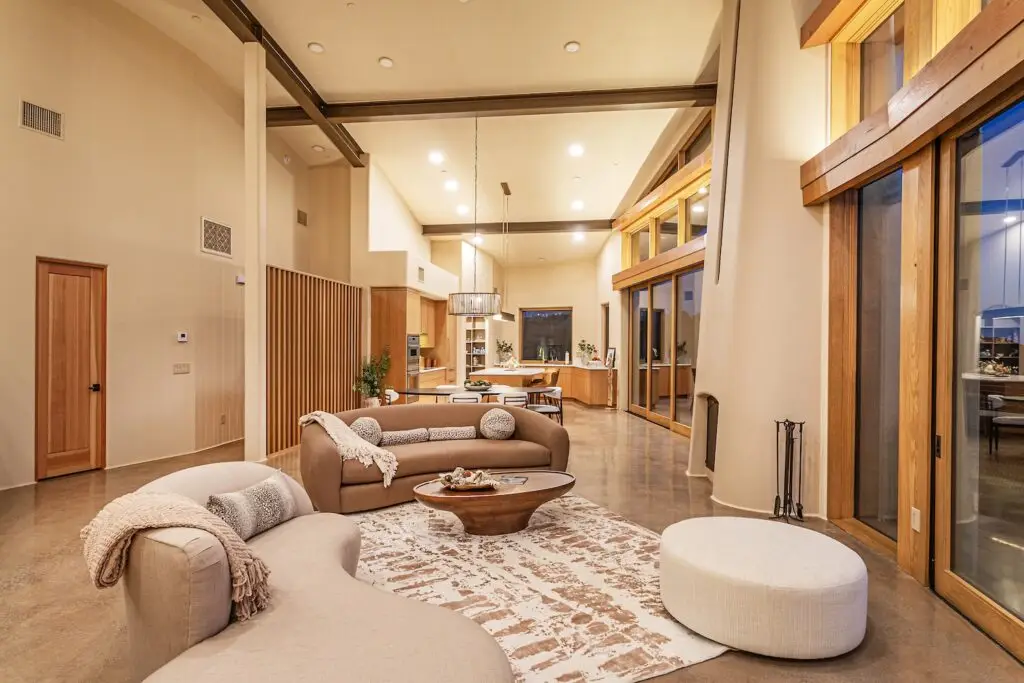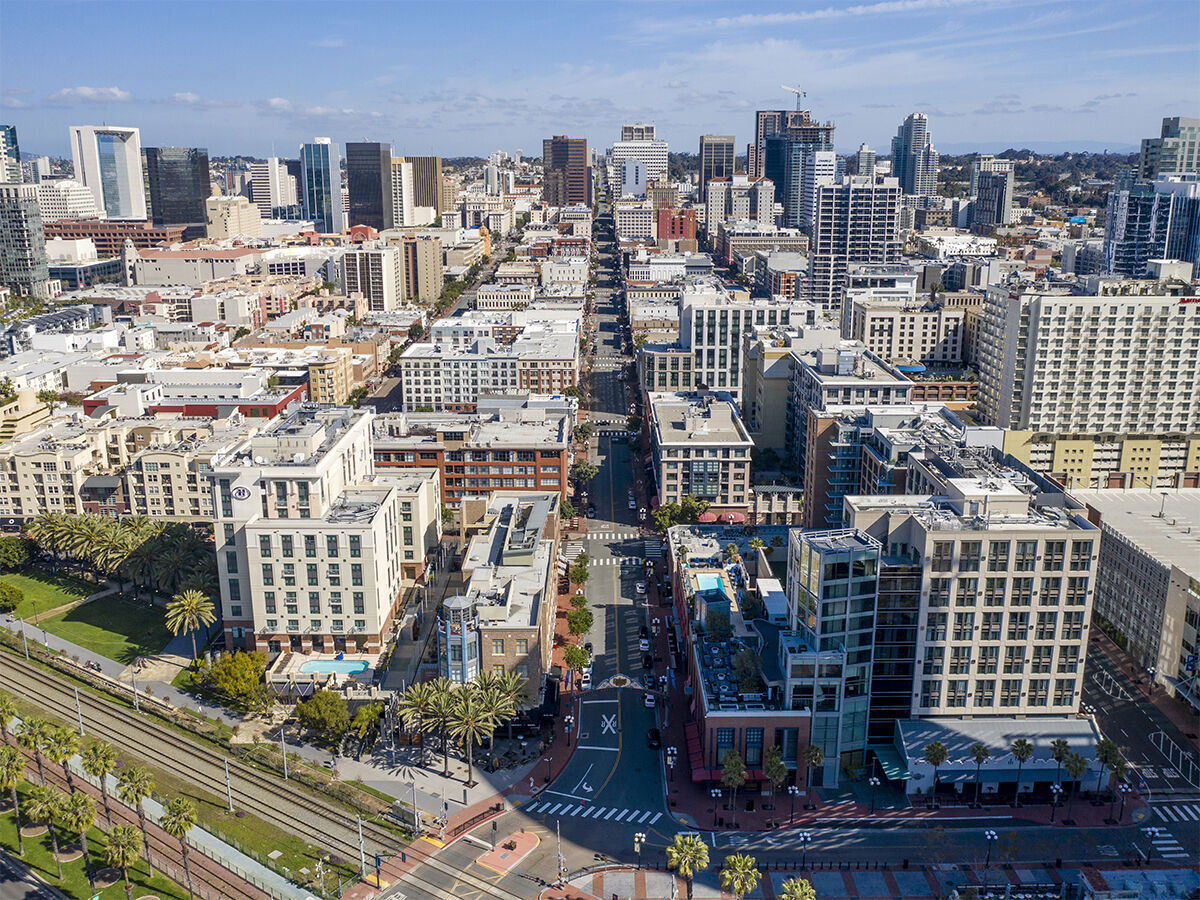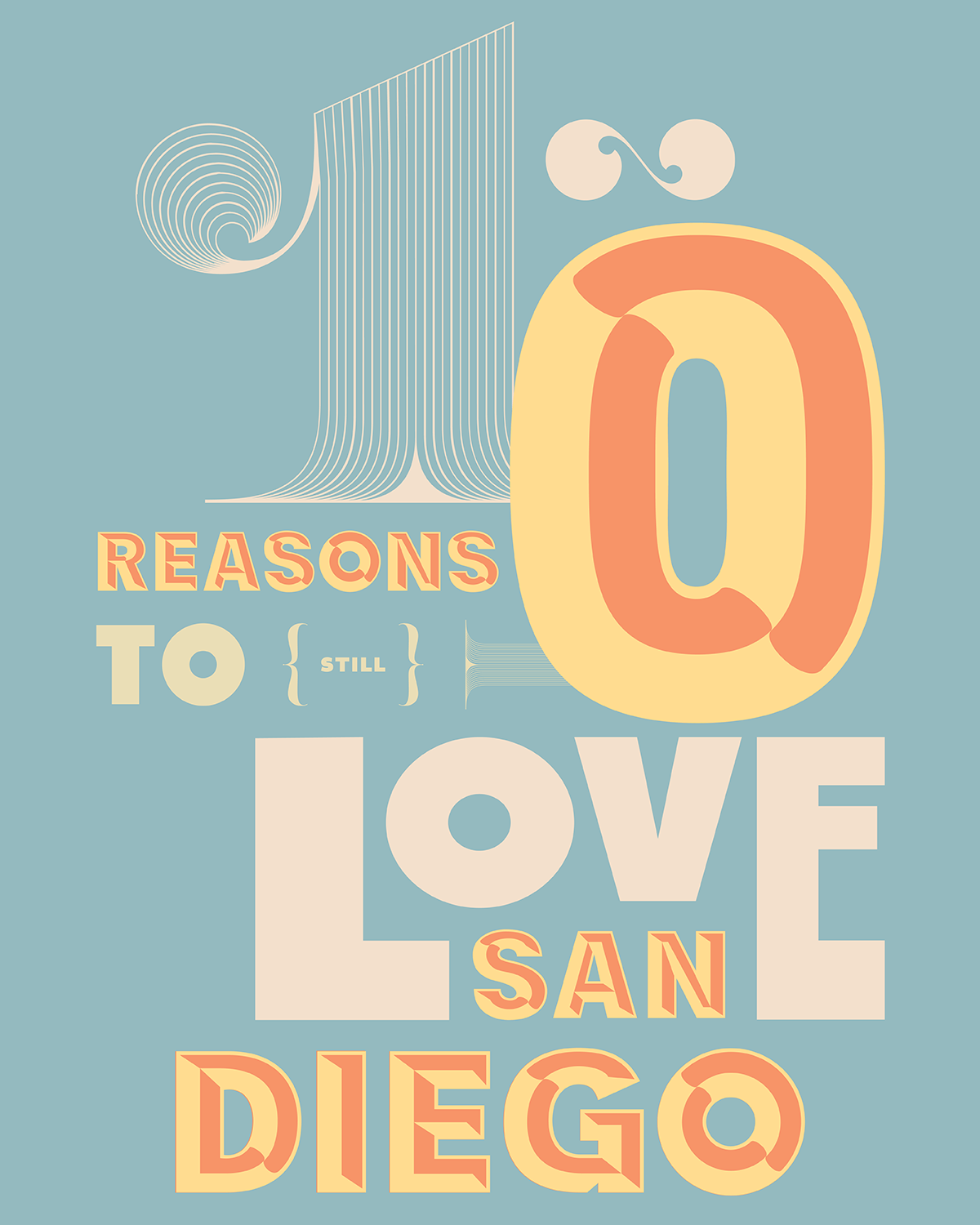
Reasons to Love San Diego / Feature
Graphic by Tania Roulston
People Still Gave Back, and They Gave More in 2020
From April through September 2020, the average quarterly gift from San Diego households increased to $432, from $374 the previous year. Not only did our residents give back more, but the causes they supported shifted, too. A poll by the University of San Diego showed that over 50 percent of people who donated money chose issues they felt were the most pressing: food security, helping essential workers, and social and racial justice. For example, the annual Pack the Pantry food drive, organized by the Jacobs & Cushman San Diego Food Bank, saw a record donation amount (around $50,000), which provided 90,000 meals to community college students at 10 campuses. Here’s hoping this spirit of giving continues into 2021.
Source: 2020 Annual Report, State of Nonprofits and Philanthropy in San Diego; University of San Diego
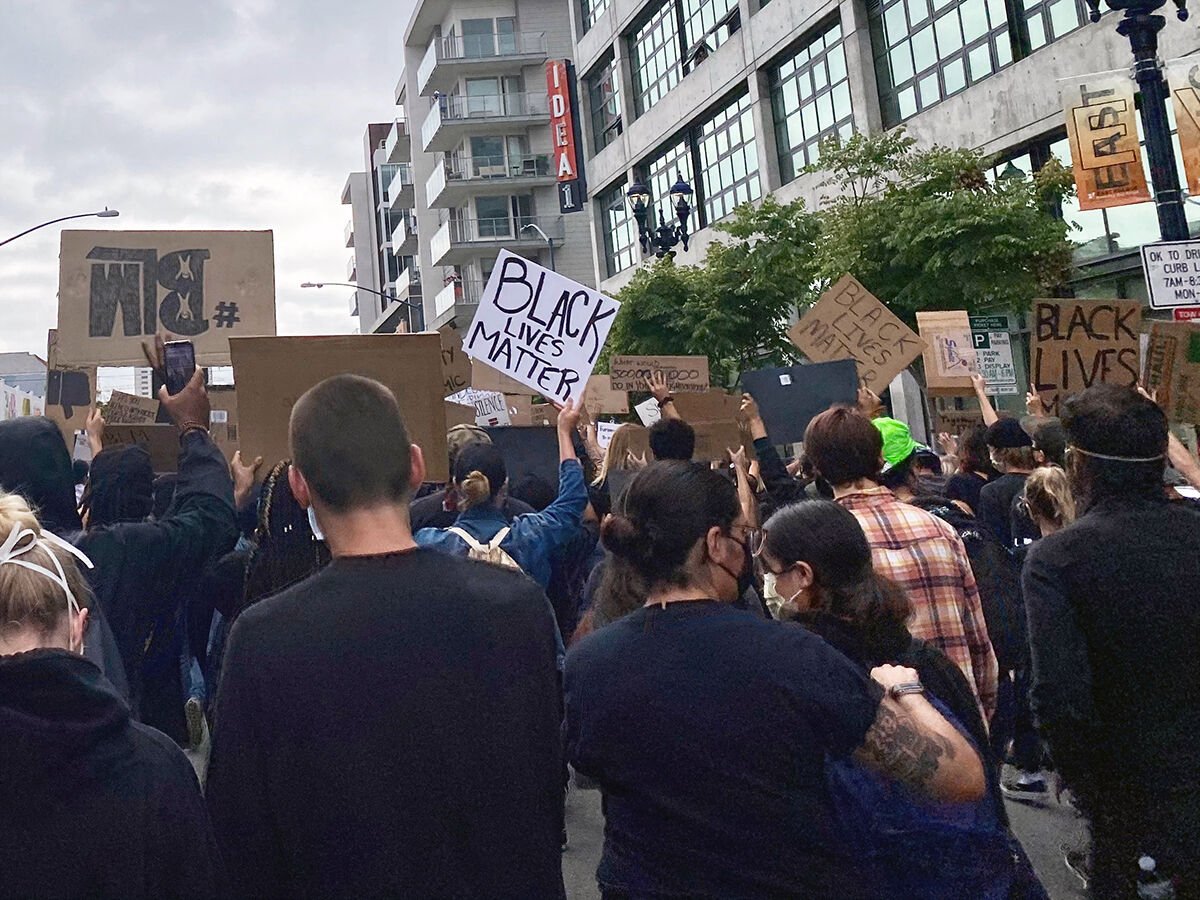
Reasons to Love San Diego / Social Activism
San Diego Steps Up for Social Activism
We can thank our Gen Z-ers and millennials for the “cancel 2020” memes that got us through last year, but when it came to social justice, they also took more concrete action.
Because the beach is always open and the culture trends in the direction of mellowness, San Diego is often miscast as disinterested in the hard conversations the country has about justice. But the younger generations helped organize more than 45 peaceful protests countywide last summer in response to the killings of George Floyd, Breonna Taylor, and countless other Black citizens at the hands of the police.
The county’s first major protest was in La Mesa on May 29: Dozens of demonstrators assembled outside La Mesa Police Department headquarters after a viral video showed the forceful arrest of an unarmed Black man at the Grossmont Transit Center. On December 9, a city review panel upheld the firing of the officer and on January 4, 2021, the officer was charged with filing a false report. On May 31, a 25-year-old Black woman organized several hundred protestors at the Hall of Justice, marching through downtown San Diego.
But some of the largest protests came in early June. Hundreds joined a caravan from La Jolla to City Heights, National City, and Otay Mesa. Over 2,000 demonstrators marched from the San Diego Police Headquarters to North Park on June 4 and two days later, another 3,000 people gathered at the County Administration Center.
Many of these protests stood in solidarity with the Black Lives Matter movement, which advocates for nonviolent civil disobedience as a response to racist and violent acts against the Black community. Law enforcement agencies across the county took action, most notably by banning use of the carotid restraint, which is similar to the restraint that led to Floyd’s death. The protests also spurred the passage of Measure B, which establishes an independent review commission on police practices. Measure B passed with 74.6 percent of the vote.
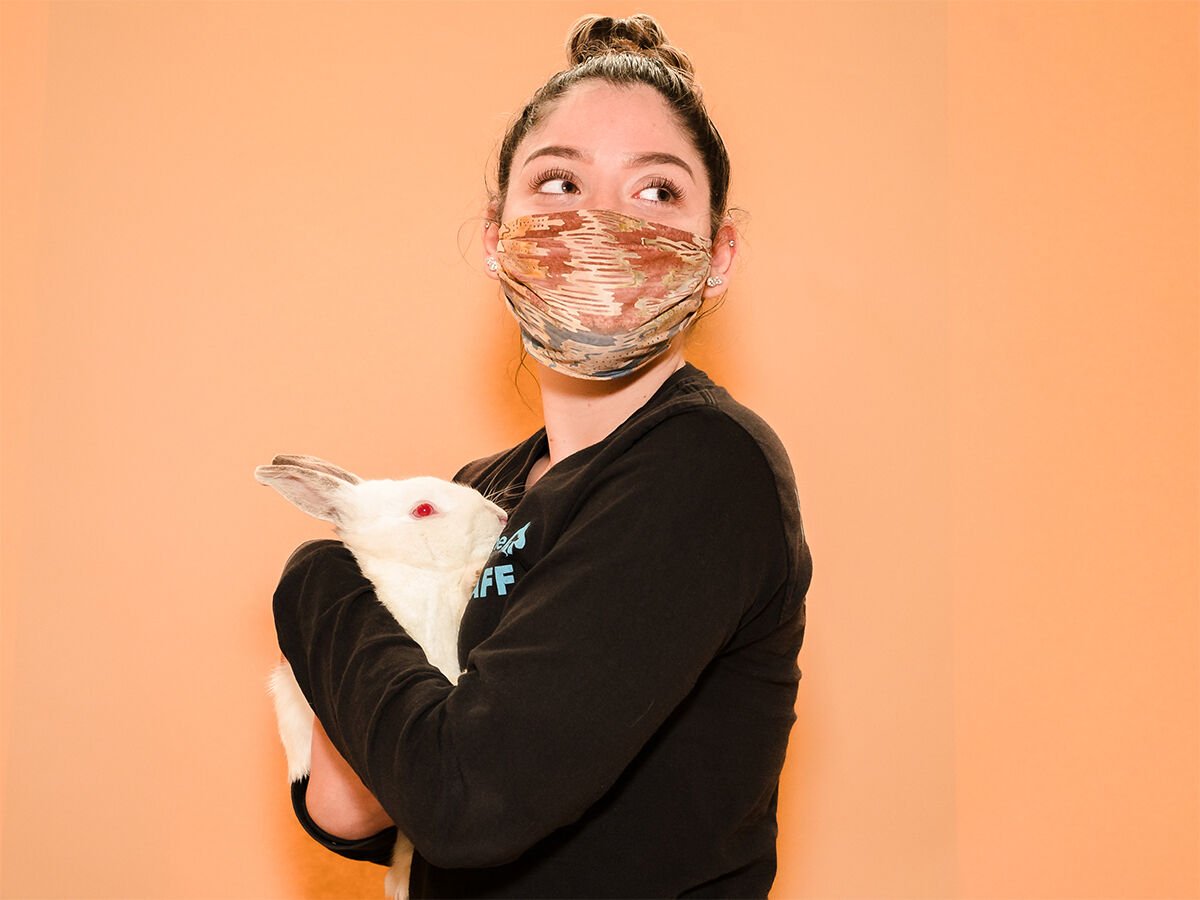
Reasons to Love San Diego / Sweep the Shelters
Photo courtesy of the San Diego Humane Society
Staying Home Helped Sweep the Shelters
With their favorite humans spending much more time at home, our four-legged friends were loving the lockdown. And for those who were still waiting for a home, San Diegans helped sweep the shelters with a record number of new fosters and adoptions at the start of the pandemic. “This county has always been there for animals, but especially so during the shutdown,” says San Diego Humane Society President and CEO Dr. Gary Weitzman. The humane society’s four campuses were virtually cleared last March, when their head count of 3,000 decreased to under 1,000 and 65 percent of their animals went into foster care. And our pets aren’t the only ones to reap the benefits: While the pandemic takes a heavy toll on our mental health, Weitzman suggests that animals are a major cure for the quarantine blues. “We’ve had less animal surrenders, more fosters, and can really feel the love San Diego has for its animals.”

Coronado Bridge
Photo courtesy of the Port of San Diego
Light Testing Began on the Bay
For nearly 15 years, the port has been developing a permanent light installation for the Coronado Bridge that will change colors to reflect what’s happening in the city, much the same way the Empire State Building does for New York—celebrating holidays, sports teams, or visits from international representatives. The project made a huge leap last year when the Port of San Diego temporarily installed 170 lights to gather information on the engineering, design, and sustainability of the project. For longterm associates—like Yvonne Wise, the port’s director of the Waterfront Arts & Activation department, and Commissioner Marshall Merrifield, who spearheaded the fundraising campaign—the test was the result of years of hard work. The next steps are to raise more money (a humble $13 million) and work with an artist on the design.
Chula Vista Rolls Out the Red Carpet for All
When life gave Chula Vista lemons, they made lemonade for their new neighbors. The “Lemon Capital of the World” was recently named the most welcoming city for immigrants in the US by the New American Economy Cities Index. This index analyzes immigrant integration on an economic and local-policy level to find insights on how cities can maximize the potential of their newcomers—to become US citizens, small-business owners, and homeowners. Chula Vista landed perfect scores in government leadership, economic empowerment, inclusivity, job opportunities, and civic participation. It’s been a fast and steady climb to the top for the county’s second-largest city, which ranked third on the index in 2018 and moved into second place in 2019. It was a pretty sweet note in an otherwise sour year.
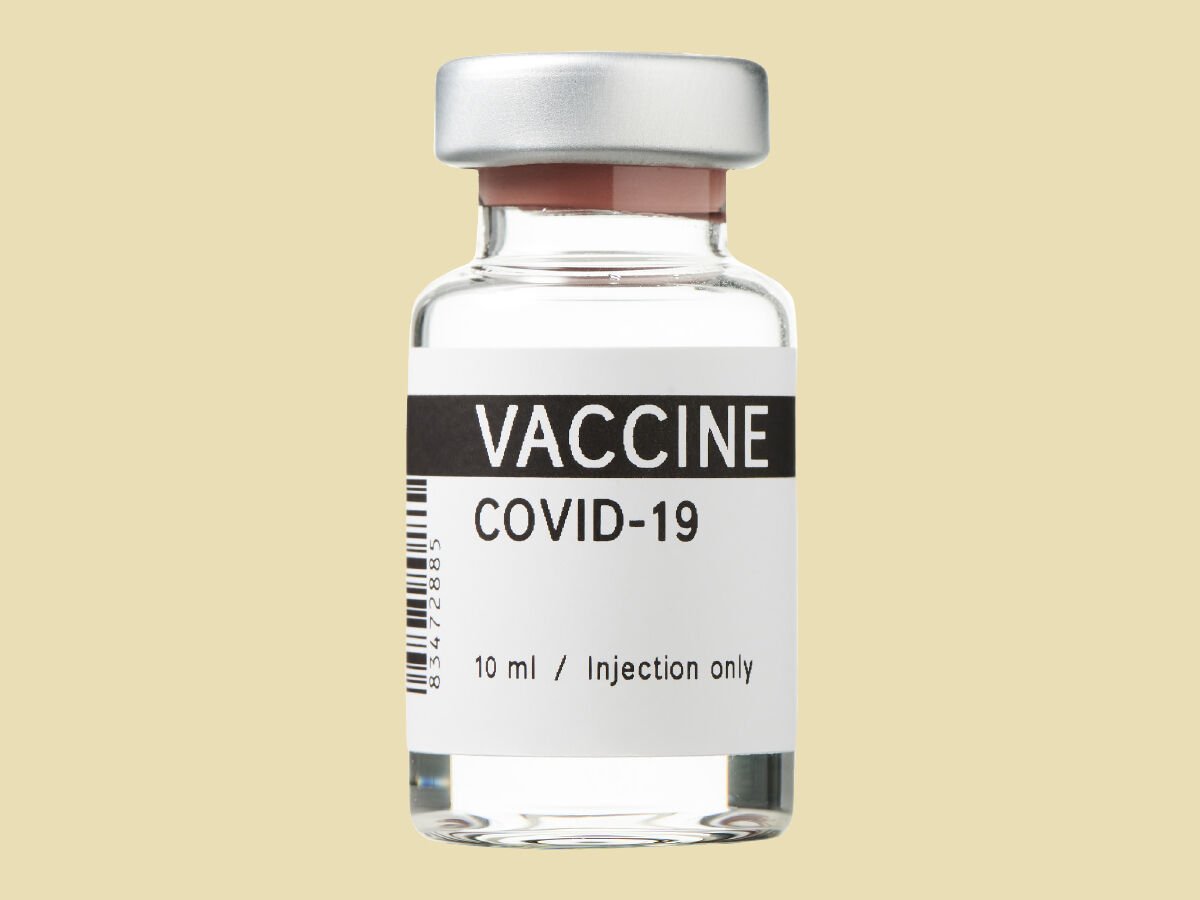
Reasons to Love San Diego / COVID-19
Our Local Biotech Industry Tackles COVID-19
It’s the news we’ve all been waiting for: A mass rollout of COVID-19 vaccines is underway. But San Diego local Jaime Yslas already got vaccinated—at least, he thinks he was.
After reading that Latinos and seniors have been underrepresented in coronavirus research, Yslas figured that he checked all the boxes, so he signed up for a double-blind study in which two-thirds of participants received AstraZeneca-Oxford’s vaccine. In November, he stood in a Chula Vista parking lot beside a bloodmobile that’d been converted into a mobile clinical trial site. “You have to step forward, or we’re never going to find the answer,” he says.
San Diegans have also been stepping forward for clinical trials of the Moderna and Johnson & Johnson vaccines. All three local studies, overseen by UC San Diego, were part of a larger international bid to test whether the vaccines are safe and effective for all.
San Diego has been at the forefront of the fight against COVID-19 from the start, with a robust strategy of testing, contact tracing, and hatching potential vaccines. “The amount of innovation that’s come out of San Diego is broad and deep,” said Tim Scott, a biotech executive who has tracked local COVID-19 initiatives through a taskforce for the trade group Biocom.
Hologic’s San Diego facility has cranked out tens of millions of tests for SARS-CoV-2, the virus that causes COVID-19, and the company is ramping up production, thanks in part to a $119.3 million US government contract awarded in November.
“The vast majority of all our molecular diagnostics kits—not just for COVID-19—are made here,” says Hologic spokesperson Suzanne Clancy, who notes that the Massachusetts-based company has 1,100 employees right here in San Diego. “We benefit from the excellent talent pool and thriving life sciences industry in the area.”
Testing demand outpaced supply in San Diego last summer, as it did in many places. To help ease the crunch, the county’s public health department signed a contract with a startup best known for genomics. Helix, an offshoot of San Diego genomics giant Illumina, has raised more than $350 million to study the genetics of large populations to discover new ways to diagnose and treat disease. In a pandemic pivot, the company’s San Diego lab set out to process more than 100 million COVID-19 tests a day for health systems, employers, governments, pharmacies, and other organizations. In order to scale up, Helix was one of the first to win emergency approval from the Food and Drug Administration for a COVID-19 test that directly sequences genetic material, increasing the company’s testing capacity. Other companies rely solely on commonly used PCR instruments that amplify genetic matter to process nasal swab tests.
Researchers have also looked to our smartphones and wearables, like Fitbit, for potential ways to rein in the virus. In a study published in the October issue of Nature Medicine, Scripps Research found that pairing data from wearable devices with symptom self-reporting did a better job of predicting the virus’s spread than either method alone. Last summer, Scripps recorded 35,000 people in the ongoing study, with an eye toward 100,000 participants.
Before a statewide rollout in December, UC San Diego piloted an app, CA Notify, that uses a smartphone’s Bluetooth capability to tell people when they’ve been exposed to someone who was later diagnosed with COVID-19.
As of press time, the Pfizer-BioNTech and Moderna vaccines have received US approval. San Diego–based Arcturus Therapeutics and Inovio Pharmaceuticals are still in clinical trials with their vaccines and are being watched closely. Each vaccine works in different ways, meaning one may prove to be best for older adults, for instance.
Only time will tell how the vaccines fare, but San Diego’s exhaustive efforts to fight the virus have helped give the county, and the country, an extra dose of what we need most—hope.
We Elected Our First LGBTQ Mayor and Mayor of Color
When Todd Gloria was in the fourth grade at Hawthorne Elementary, he was a finalist in the school’s “Mayor for a Day” essay contest. “I believe the prompt was about building a better city and my response was about more homes and transit for San Diegans,” Gloria says. “I haven’t changed much over the years.” Three decades after entering that contest, Gloria was sworn in as San Diego’s mayor in December.

Todd Gloria
Photo courtesy of Todd Gloria
Gloria’s win is a historic one, as he’s the first openly LGBTQ person elected to serve in the city’s highest office. Today, just three of the eight most populous cities in the country, San Diego included, have elected an openly LGBTQ mayor: Houston (Annise Parker) and Chicago (Lori Lightfoot, in 2019).
The rainbow ceiling isn’t the only one Gloria shattered: He’s also the city’s first mayor of Asian, Latino, and Native American heritage.
During his inauguration, which was done virtually (another first for the position), Gloria said, “As a kid who grew up in Clairemont, I didn’t see people who looked like me leading practically anything—let alone the eighth largest city in the United States. But today, I stand before you as the first person of color and LGBTQ person to ascend to our city’s highest office.” His nephews and nieces watched him get sworn in on TV from their living room, and they dressed up for the occasion.
For his first 100 days in office, Gloria said he’s prioritizing the public health crisis and economic fallout caused by COVID-19, housing issues, homelessness, and the city’s Climate Action Plan, the first incarnation of which he drafted while serving as interim mayor from 2013 to 2014.
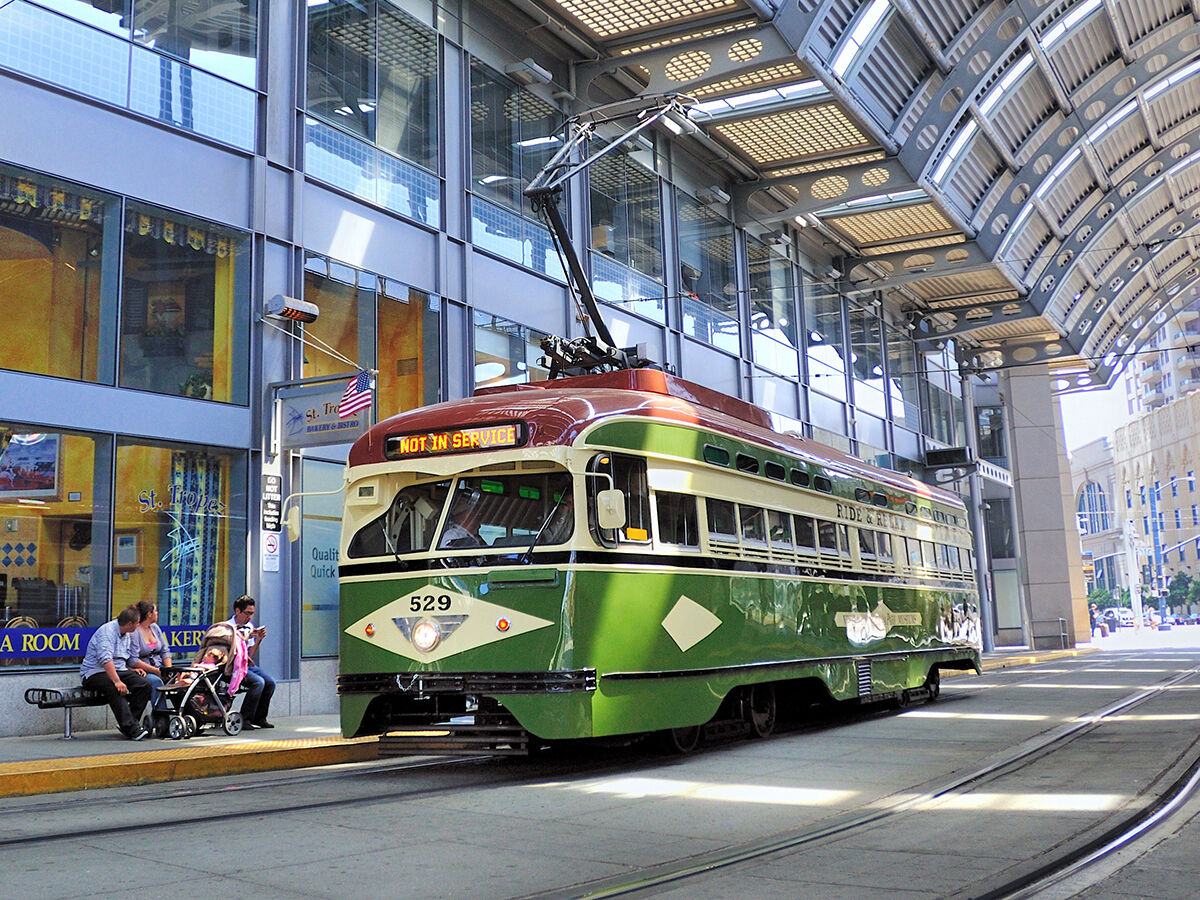
Reasons to Love San Diego / San Diego Metropolitan Transit System
Photo courtesy of San Diego Metropolitan Transit System
We’re Moving Into the Fast Lane
Like the so-called sunshine tax, San Diego’s disjointed public transportation has long been considered part of the cost of living here. But there are smoother roads ahead, with the San Diego Metropolitan Transit System laying the final tracks for its $2.1 billion Mid-Coast Trolley Extension from Old Town to University City, with service to begin later this year. It’s the largest light rail extension in the city’s history, adding nine newly constructed stations and a fleet of 45 shiny new trolleys to its roster.
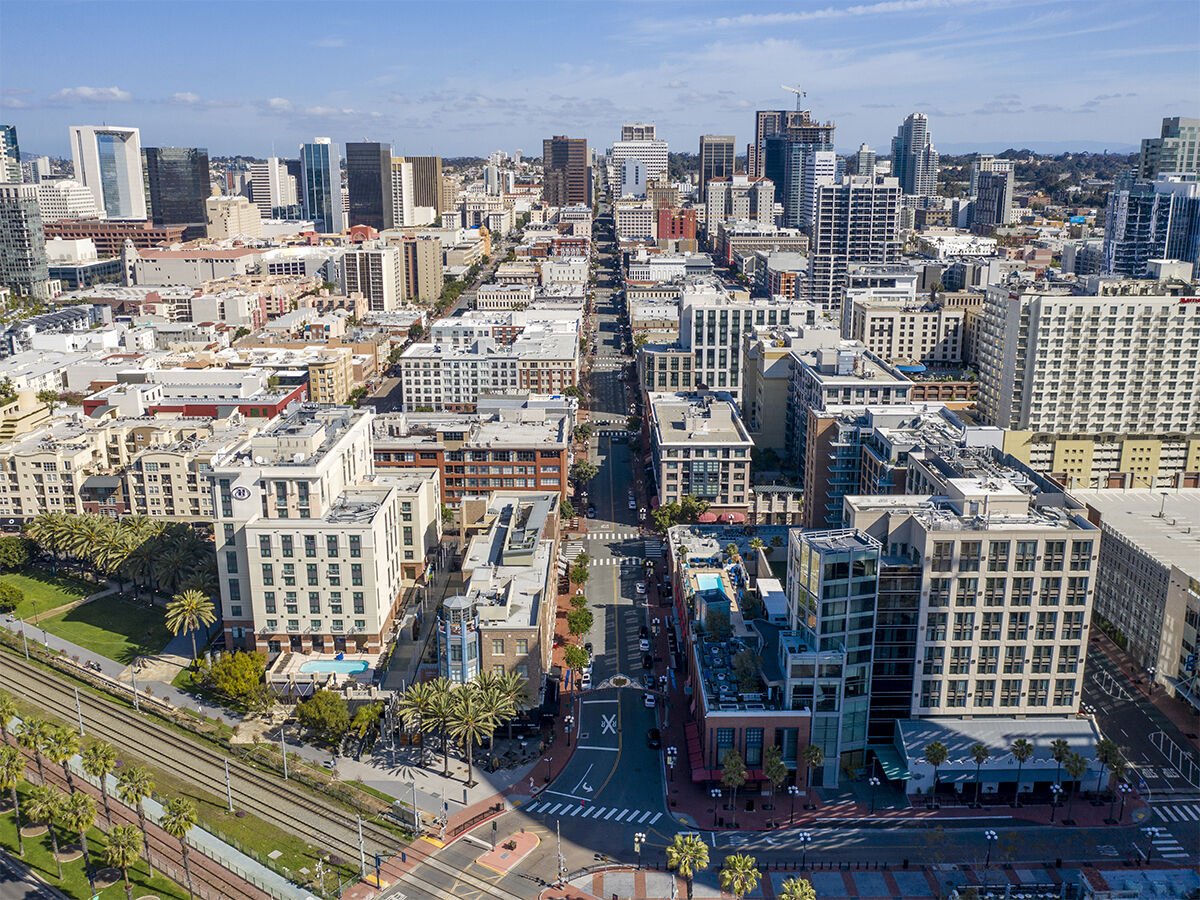
Reasons to Love San Diego / Building Boom
The Building Boom Hasn’t Stopped
As of last fall, there were 14 new construction projects downtown alone, including more than 3,000 new apartments. There’s also major housing projects underway in Kearny Mesa (442 units), UTC (over 400 units), and the massive development at Town & Country resort in Mission Valley (over 800 units). The Riverwalk project in Mission Valley is also finally breaking ground this year: When it’s complete, the 195-acre neighborhood will have over 4,000 new homes.
COVID Collabs
No sector felt the impact of the shutdown more than San Diego’s small businesses. But where there were struggles, there was just as much support. Last year saw a wellspring of collaborative efforts from restaurant, event space, and retail shop owners helping one another stay open. It took some creativity, but the results just go to show that even during the most dire circumstances, community always comes first.
When Natalie Mitchell and Violet Navarrete faced a series of setbacks shortly after opening their clothing and gift store Timshel Shop—repeated flooding on top of the pandemic, to give you an idea—they made the difficult decision to permanently close their doors. But when they turned to online sales to keep them afloat, fellow female-owned home goods shop Thread Spun had a different idea. They’d had their own experience with flooding (all three owners refer to one another as “floodies,” for flood buddies), and they offered Timshel a long-term pop-up space inside their own store. Over last summer, Timshel donated 20 percent of their pop-up profits to local organizations and raised over $1,000. “Our community may look different now, but we’ve been blown away by the support and lasting relationships we’ve built,” Mitchell says. “Collaborating with other small businesses has been an integral part of building our community.”
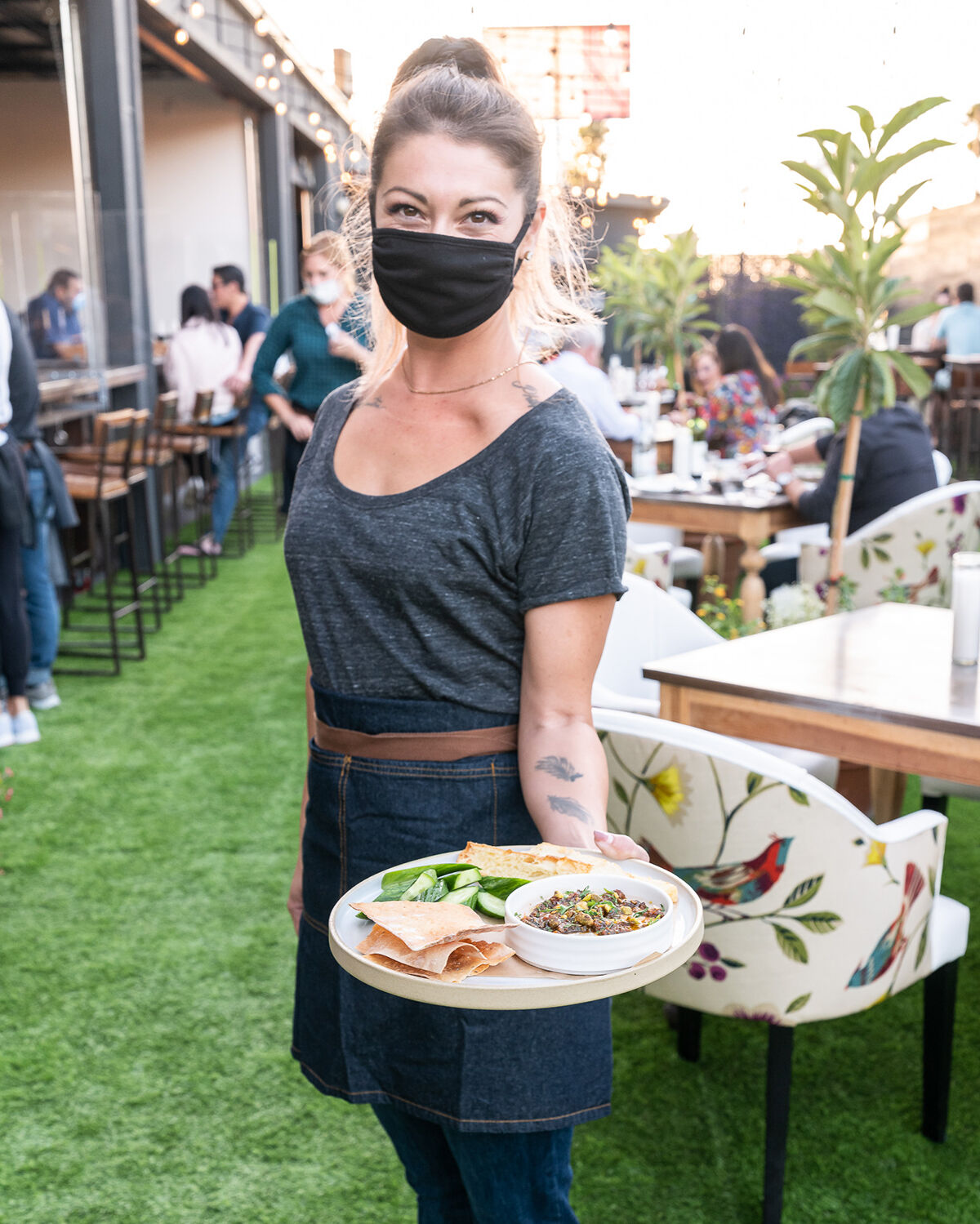
Reasons to Love San Diego / COVID Collabs
Photo courtesy of Cucina Urbana
Community was always key for Gaslamp Tavern, a relaxed downtown bar popular for its good drinks and happy hour deals before 2020. But the pandemic’s toll on the restaurant industry encouraged owners Estela and Rick Borba to pursue an idea that had been brewing for years. To amplify their offerings and rally behind small pop-up eateries, the duo transformed the tavern into Gaslamp Tavern & Food Hall. Now housing Ghost Fried Chicken, San Diego Tuna Company, and Tacos el Tuerto, the food hall gave emerging businesses a home while bringing more dining options to downtown.
PARTNER CONTENT
Cucina Urbana has been a vital player in that scene for years, but they struggled last summer when they were unable to create an outdoor dining space (while permitted) due to the layout of their restaurant. Their neighbors, Julep Venue, already had a string of successful virtual events under their belt when they reached out about a backup plan. “We have two large patios that were sitting there unused,” says Julep’s founder and managing partner, Michael Esposito. “It just seemed like the obvious choice to give Cucina Urbana that space.” Over one weekend, the teams got together to work out the logistics of Camp Cucina, a blend of Julep’s eye for design, Cucina’s food, and Snake Oil Cocktail Company’s craft libations. “Everyone has had their own unique challenges during this time,” Esposito adds. “If you can come together to solve those challenges with another business, it’s an absolute no-brainer to do it.”
